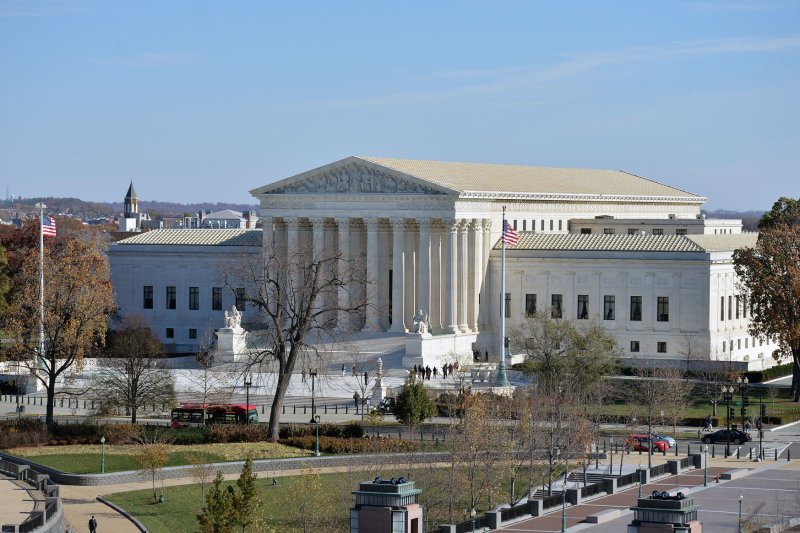The United States Supreme Court building UPI/Kevin Dietsch |
License Photo
WASHINGTON, Jan. 26 (UPI) -- Oklahoma asked the U.S. Supreme Court on Monday to delay the execution of three inmates who have sued the state over its lethal injection drugs.
Attorney General Scott Pruitt said he does not believe the three have a chance of winning their case. But he said the court, which agreed to hear arguments Friday, should grant them a stay.
A fourth inmate in the lawsuit, Charles Warner, was put to death Jan. 15 after the high court refused to postpone his execution.
"Two federal courts have previously held the current protocol as constitutional, and we believe the United States Supreme Court will find the same," he said. "We thus support stays until a decision in the State's favor is final or until viable alternative drugs can be obtained."
Oklahoma suspended all executions last year after Clayton Lockett died in April several minutes after prison officials decided to halt the proceedings. Lockett was still alive more than half an hour after Oklahoma's three-drug mixture was administered. An autopsy later found he had died from the drugs and not from a heart attack.
Because pharmaceutical companies have become unwilling to supply execution drugs, states have been scrambling to get them from compounding pharmacies. Much of the controversy in Oklahoma concerns the state's use of midazolam, a drug that has a sedative effect, because the maker of pentobarbital blocked its use.
Oklahoma officials said they would ask the high court to lift the stays if it can obtain drugs previously used for executions.
Warner was originally scheduled to die the same night, but his execution was postponed.
"Today, states are not using that 3-drug protocol and instead are using experimental drug combinations. The drug protocol used in Oklahoma is not capable of producing a humane execution, even if it is administered properly," said Dale Baich, a member of the inmates' legal team. "The time is right for the Court to take a careful look at this important issue, particularly given the bungled executions that have occurred since states started using these novel and experimental drugs protocols."
Oklahoma has put 112 people to death since the U.S. Supreme Court refused to outlaw executions in 1976, ranking third behind Texas and Virginia. The state has the highest number of executions per capita in the country.
Two of the inmate plaintiffs were scheduled for execution this week and the third in March.















